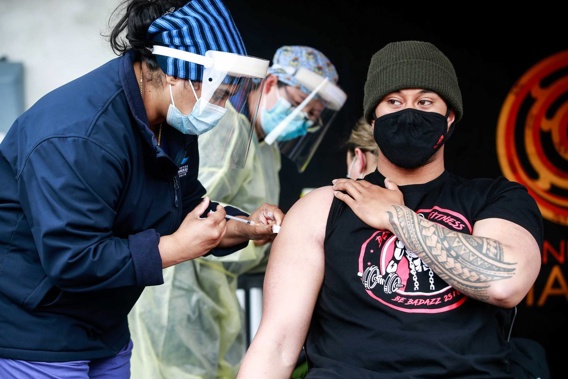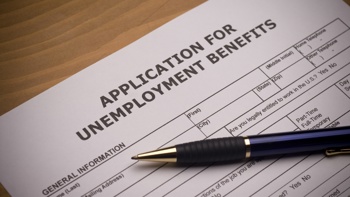
One of the first studies of its kind has found that Māori and Pasifika, while at higher risk from Covid-19, are reassuringly no less protected by the vaccine than other groups.
But, like studies overseas, the new paper found the neutralising antibody response that two doses of the vaccine delivered against Omicron was much lower than what it gave against Delta and the original coronavirus strain.
Experts have long questioned what New Zealand's unique demographic make-up and relative lack of exposure to Covid-19 might mean for our immunity profile – particularly when compared with countries where the virus has been circulating for over two years.
In the study - titled Ka Mātau, Ka Ora, researchers assessed immune responses created by two doses of the Pfizer vaccine, using serum samples taken from 285 adults who hadn't been infected with the virus before.
Of the sample group, 30 per cent were Māori, 28 per cent were Pacific people, about a quarter were aged over 65 years old, and about 55 per cent were female.
Among this cohort, chronic health conditions like obesity, cardiac and pulmonary disease and diabetes were also more common than in the general population.
A month after being given two vaccine doses, virtually all of the participants had built up strong responses, with neutralising antibody levels high across gender and ethnic groups.
Some differences however stood out: antibody levels declined with age - with those in people aged over 75 years being more than three times lower than in young adults.
Weaker responses were also associated with type 2 diabetes – although body mass index (BMI) didn't appear to be a factor.
And while these antibodies were shown to neutralise other Covid-19 variants like Delta, Beta and the original strain, they were severely diminished against Omicron.
That again reinforced the need for people – especially those most at risk – to get boosted, study author and Vaccine Alliance Aotearoa New Zealand – Ohu Kaupare Huaketo director Dr Fran Priddy said.
Overall though, the results - published online ahead of peer review - were encouraging.
"The results are reassuring given the study represented some of those New Zealanders most at risk for Covid disease – older adults, Māori, Pacific peoples, and those with co-morbidities like diabetes, obesity or heart disease," Priddy said.
"These results can give confidence to everyone who has received the Pfizer vaccine and those still undecided about getting vaccinated or boosted that this is an effective vaccine."
That older groups had lower, but still adequate, responses wasn't unexpected.
"We know from international data they are at risk for decreasing antibody levels over time, which is why a booster dose is recommended," Priddy said.
"As the pandemic continues to evolve, older adults and people with diabetes should be included when considering policy decisions about additional booster doses."
The ongoing study was assessing response to boosters, durability of responses and T-cell immune responses.
Malaghan Institute clinical immunologist Dr Maia Brewerton said this work would be important to monitor the difference seen in the immune response in our population following a booster dose, as more New Zealanders develop infection-induced or "hybrid" immunity and as new variants arise.
"Not all antibodies are created equal and neutralising antibodies are particularly important because they can block the entry of the virus into host cells and prevent infection."
She noted that, while the study showed no difference in the antibody immune response in Māori when compared to non-Māori, the rates of infection and hospitalisation from Covid-19 remain higher among Māori and Pasifika.
"The importance of driving up vaccination rates and correcting health and social inequities to reduce the burden of disease amongst these groups remains critical."
The study adds to what researchers have been learning about Kiwis' immunity and Covid-19.
Earlier work by University of Auckland immunologist Associate Professor Nikki Moreland and colleagues found that, among a group of Southland patients infected in the first wave, neutralising antibodies created by natural exposure lingered out to nearly a year.
But as her team recently found in an updated study, antibodies from prior infection with the original type unfortunately didn't hold up as well against Omicron.
In February, researchers similarly reported in The New England Journal of Medicine that, while having been infected with an earlier variant produced a response about 90 per cent effective against Delta, that fell to just 56 per cent against Omicron.
Slightly more encouraging was the fact previous Covid-19 infection did offer a relatively high level of protection against severe, critical or fatal disease, with the same researchers reporting effectiveness of 100 and 78 per cent against Delta and Omicron respectively.
In the UK, meanwhile, recent surveillance data has indicated vaccine effectiveness against symptoms from either BA.1 and BA.2 Omicron sub-types fell to less than 20 per cent about 25 weeks or more after a second dose - but climbed to around 70 per cent two to four weeks after a booster.
Another study published last month explored data from some 2.2 million people in Qatar who'd received at least two doses of either the Moderna or Pfizer vaccine.
It found booster effectiveness against symptomatic Omicron was 49 per cent, compared with people who'd had only two doses, while effectiveness against symptomatic Delta was 86 per cent.
Importantly, though, it found boosting was still about 76 per cent effective at protecting Omicron-infected people against hospitalisation and death.
The Government is now considering whether to offer a fourth dose of the vaccine – and experts say this should be targeted only at high-risk groups.
Take your Radio, Podcasts and Music with you









